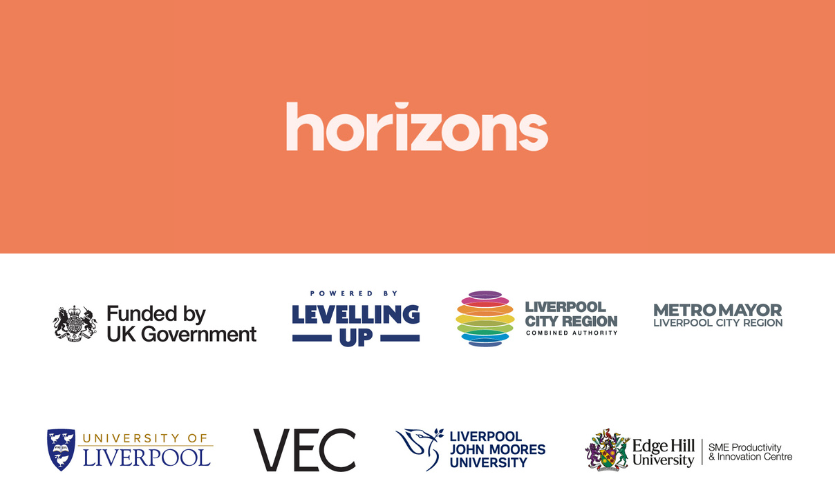Championing regional innovation

Anthony Walker, Strategic Manager at LJMU for Horizons – a project backed by government funding to foster economic growth and innovation in the Liverpool City Region with the help of universities – shares his industry insight into the impact of the Spring Budget 2024 and the importance of driving forwards innovation.
Spring Budget 2024: Why the lack of funding for Net Zero and regional AI development are missed opportunities
In March, Chancellor Jeremy Hunt presented the Spring Budget for 2024, delivering a string of tax cuts and promising a “budget for long-term growth”.
However, with little focus on incentives to drive forward progress towards the UK’s Net Zero ambitions and a £100m investment into AI granted to the Alan Turing Institute in London, the Budget marked a missed opportunity to increase investment into a sustainable future for the UK and support levelling up ambitions on a national scale outside of the capital.
The investment case for Net Zero
The UK government’s commitment to reaching Net Zero by 2050 is one of the biggest challenges facing the country, and translating ambition into action requires significant investment.
Hunt’s Budget included a number of announcements regarding decarbonising the UK’s energy system, including confirmation of the budget for the upcoming Contracts for Difference (CfD) Auction at over £1bn and a £120m investment increase for the Green Industries Growth Accelerator (GIGA) to support the expansion of sustainable clean energy supply chains across the nation.
However, aside from these welcome extensions to existing schemes, there was an evident lack of more concrete measures to bolster the UK’s Net Zero economy. The Chancellor did not offer any new policies to boost the roll-out of low-carbon technologies or electrification, leaving energy industry members and businesses committed to Net Zero disheartened.
If the UK is to achieve its Net Zero mission, innovation will be key. Technological innovation has a crucial role to play in the development and deployment of cleaner energy solutions and in supporting businesses in investing in a sustainable future. The International Energy Agency projects that almost half of emissions reductions over the next three decades will come from technologies that are currently at the demonstration or prototype stage.
Above all, this requires investment. The Climate Change Committee estimates that investment in decarbonisation must scale up to £50bn each year from 2030 in order to deliver Net Zero. The radical transformation required will not happen on the necessary scale or at the necessary pace without government spending, regulation and incentives.
In the face of the investment required, it’s easy to forget that the transition to a Net Zero economy – which grew by 9% last year – also presents an opportunity for growth. A recent report from the London School of Economics suggests that the UK government should increase annual public investment in tackling climate change by the equivalent of about 1% of GDP in order to improve public growth. Without public investment, there will likely be a continuation of stagnant productivity and weak economic growth.
While innovation is crucial if the UK is to meet Net Zero by 2050, in turn the drive towards a Net Zero economy fosters innovation, attracting investment in green finance and positioning UK businesses as leaders in sustainable solutions. Action through investment now will unlock long-term gains for our economy, cutting costs later by ending costly reliance on imported gas, improving resource efficiency and building knowledge clusters in burgeoning clean-tech and green finance sectors.
Besides the potential to contribute to the UK’s future prosperity and economic growth, the transition to a cleaner, greener economy also presents an opportunity to help reduce regional equalities across the UK by generating regionally balanced growth. According to the Economy 2030 Inquiry, although patents tend to be concentrated in the ‘golden triangle’ regions around London, Oxford & Cambridge, other regions tend to be more specialised in clean technologies. Establishing strong regional clusters for greener innovation will see returns in these regions, as well as generating spillovers for the country as a whole.
Artificial Intelligence – regional innovation readiness
While Net Zero remains one of the most pressing issues facing our country, the Budget’s failure to address regional inequalities in its announcement of a £100m investment boost for Britain’s growing AI sector marks another missed opportunity for investment.
While the UK boasts world-class AI research institutions, talent is concentrated primarily in London and the South East. In doubling funding for the Alan Turing Institute in London, Hunt wishes to harness the power of AI to improve the country’s productivity and unlock economy growth, focusing on three key areas: transforming healthcare, creating a sustainable future, and strengthening defence and national security. However, the potential for regional AI development has gone overlooked.
While a £7.4m AI upskilling fund pilot was also announced to help SMEs develop AI skills, until it is clearer how the funding will be allocated, the question remains of how regional inequalities will be addressed.
Ignoring regional discrepancies hinders the UK’s capacity to tackle diverse challenges and address specifics needs across the country, such as the optimisation of agricultural practices, improving transportation networks, and providing healthcare solutions in underserved regions.
Recent research by the Institute for the Future of Work (IFOW) suggests that the adoption of AI, robotics and automated equipment is having an overall positive impact on jobs, with more than three-quarters of firms reporting that the use of AI has created new roles, and the majority reporting that job equality has improved.
There is caution, however, that the pace at which automation is spreading, if not properly addressed, could exacerbate regional inequalities, as a result of discrepancies in “regional innovation readiness”. Determined by the level of investment in a particular region and the levels of education and skills among the region’s workers, London and the South East, unsurprisingly, score much better in terms of regional innovation readiness, and are therefore more likely to benefit from the adoption of AI.
To allow businesses across the country to realise the benefits of technologies such as AI, ensuring the right foundations are in place to allow access to digital infrastructure and skills provisions is essential. Regional businesses and SMEs must be able to access the support and funding necessary to allow them to augment their capabilities through automation.
It’s this regional innovation that we are supporting with our Horizons project, a partnership between the University of Liverpool’s VEC (Virtual Engineering Centre), Liverpool John Moores University (LJMU) and Edge Hill University to support business innovation across the Liverpool City Region.
Led by the VEC, the £5.1m Horizons programme is funded by the government through the UK Shared Prosperity Fund (UKSPF) and will support more than 100 SMEs in its pilot phase, providing the expertise, facilities, and funding businesses need to drive innovation. Critically, it is targeted support administered across the region in partnership with local universities that understand the nuances of regional businesses and the unique challenges and pressures they face.
Final thoughts
Though the Chancellor’s Spring Budget went some way to addressing the urgency of transitioning to a greener economy and progressing the adoption of digital technologies such as AI, further investment in innovation is crucial if the UK is to meet its ambitious Net Zero targets and address the regional inequalities our country faces in terms of the benefits of automation.
The UK must prioritise driving innovation, spearheading the development and deployment of clean technologies, and investment is crucial to achieving this mission. What’s needed is a holistic and coordinated growth strategy aligned with the decarbonisation mission, one which prioritises innovation for an efficient and productive Net Zero economy.
Moreover, the implementation of AI among regional businesses and SMEs must be considered as part of the UK government’s “levelling up” agenda. The adoption of AI has the potential to lead to net job creation, improved job quality and economic growth, but without a commitment to ensuring access to all, the impact of a digital transformation could exacerbate existing regional inequalities.
The original article was published with Maddyness.
Get support for your business through Horizons
Horizons is dedicated to supporting SMEs across the Liverpool City Region who want to improve their competitiveness and productivity. The programme provides practical, hands-on assistance that fosters economic growth and innovation.
Find out how your business could be supported – visit the Horizons project joint website.



